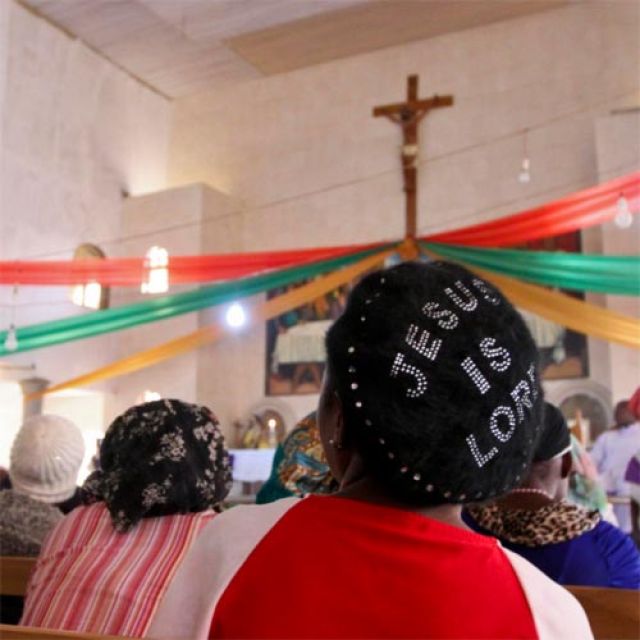He also noted that Christianity and Islam -- the country's two major religions -- did not preach violence, and those who kill should not be considered religious.
"We all know that no religion preaches or encourages violence and hate. Both the two major religions preach love and peaceful co-existence," the president said at a Jan. 6 Mass to celebrate Cardinal John Olorunfemi Onaiyekan's recent elevation to cardinal and the 30th anniversary of his episcopal ordination.
During the Mass, Cardinal Onaiyekan condemned killing in the name of religion and warned that Nigeria was fast attracting the negative image of a nation of religious violence.
He urged Nigerians to understand the inclusiveness of God's grace to all people, saying that "any God that promotes the killing of innocent people should not be worthy of our worship."
Jonathan called on Nigerians to avoid violence and embrace dialogue as a means of settling disputes.
"The church, the government and the political actors have the same responsibilities, and we believe that the church is at the center of society building," he said.
"Some of the challenges we face today are because of the characters our people have. If the church molds the people, especially starting from the children, Nigeria will be a better place," Jonathan said.
He said Pope Benedict XVI's elevation of Cardinal Onaiyekan helped promote interreligious harmony in Nigeria and reconciliation among all religious groups in Nigeria. He described the Abuja cardinal as a humble man with a great vision and learning who had fully dedicated himself to the service of God.
"I see in his appointment a recognition for those who work and toil for peace like him and for reconciliation among men," Jonathan said.
Nigeria's population of 160 million people is roughly divided between Christians and Muslims.
The international watchdog Human Rights Watch reports more than 2,800 people have died in fighting in the largely Muslim North since the Islamic sect Boko Haram launched an uprising against the government in 2009.
Nigeria's National Bureau of Statistics said that, in 2012, despite the country's oil revenues, almost 100 million Nigerians lived in poverty, living on less than $1 per day.
In 2012, Transparency International ranked Nigeria's public sector the 35th most corrupt out of 176 countries.


